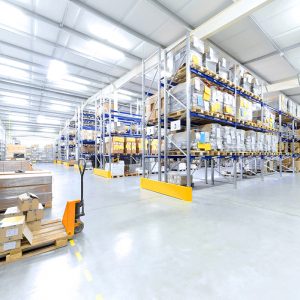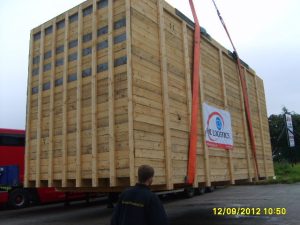Among the many components that make up the supply chain, logistics is one of the most important ones, with several responsibilities and duties that contribute to the expansion of operations on a whole. In order to propel your company to the next level, you may need to develop a logistics plan that incorporates new technology improvements.
The logistics process is responsible for the storage and transportation of products or services to their final destination after they have been produced. Thus, it may be argued that logistics and supply chains are inextricably linked as a result.
Logistics processes can be simplified by businesses of all sizes in order to reduce costs and improve overall operational efficiency. As a result, it will provide firms with the ability to identify and eliminate any possible obstacles that may hinder the optimization of end-to-end supply chain processes.
Top 10 Logistics Roles in Supply Chain Management
As part of the supply chain management process, logistics is considered to be a crucial component. It includes a number of means of transportation, beginning with delivering the right items or goods at the right time through the use of different modes of transportation.
Some of the most important logistics responsibilities in the supply chain can be summed up as follows:
Order Completion
It is the primary function of logistics in the supply chain when the order is processed by the company and it accepts the order from the customer. An effective logistics service usually manages the entire process, from the order placement all the way through to the delivery of the goods. As a result, order processing today is a technological activity that is highly reliant on the size of the organization since it is a process that focuses on fulfilling the needs of clients. It is imperative that a well-managed logistics ecosystem is set up in order to ensure that orders are properly produced, packed and delivered.
Warehouse Administration
In a warehouse management system, maintaining inventory is one of the most important parts of the process since it protects the commodities that will be transferred to the consumers in order to be sold.
Throughout the supply chain, it plays a major role as the centralized place in which all inventory is held, be it raw materials or completed items, as it is the place where all inventory is held. It is therefore imperative that warehouses are always located near the location of the dealer or distributor in order to ensure efficient delivery of goods.

Therefore, the FMC warehouse management system is capable of properly checking and tracking supplies and items as a result. It is also in charge of identifying unique requirements such as docking facilities, refrigerated storage, and so on.
Inventory Control
It is a logistical task that must be performed to determine and identify how much stock is required for an order to be placed and when the order should be placed. As a result, it is crucial that the appropriate amount of inventory is kept on hand in order to meet the demand of clients.
It assists firms in monitoring inventory records to include reordering items, estimating the demand for their items, and ensuring the safety of their products, among other things. As part of effective inventory management, warehouses are constantly monitored to identify if there is too much stock on hand or too little stock in the warehouse. By optimizing production and inventory, you will be able to meet the needs of your clients and meet their expectations. In order to be able to make intelligent choices regarding supply chain operations, inventory tracking databases are crucial.
Transportation
One of the most crucial responsibilities of logistics management is to ensure that items are conveyed effectively along the supply chain of a company. As a result, supply chain management involves automated routing and route optimization, which are significant factors in reducing costs and determining the success of the process.
Today, implementing technology developments into logistics activities is unavoidable due to the fact that it controls overall operations and improves the loyalty of consumers in a competitive marketplace. It entails moving items from one place to another in order to fulfill a client’s order while adhering to the compliance and rules of the logistics industry as a whole. It may be possible to reduce the risk of transportation through the use of freight forwarding services.
Packaging
There is a possibility that products or items might be broken or spilled during shipping or handling. Therefore, it is imperative to pack the goods properly in order to avoid such mishaps from occurring. FMC Logistics’ primary objective is to ensure that the huge volumes of items that are transported from point A to point B are transported securely and in a timely manner. In the logistics business, the required steps should be done to minimize regulatory difficulties and make shipping more cost-effective. Having the correct logistics packaging is critical for a well-packaged product that can protect it from damage, degradation, and tampering.
Demand Prediction
The logistics demand forecasting method is one of the most effective ways to forecast the needs for items in the supply chain management process. It is crucial to schedule and plan all the processes that are involved in managing the market’s uncontrollable events and situations. By projecting client requests and delivering orders in the shortest period of time, forecasting models assist firms in making informed decisions. You may be able to propel your firm to the next level by using current technologies such as advanced analytics and strong databases.
Quick Reaction
It is the responsibility of the logistics department to respond to client inquiries as soon as possible in order to maximize efficiency. It is important that fleet owners manage their supply chains to meet the expectations of their customers in order to ensure they are satisfied with their services. Consequently, as a result of this software, businesses are able to respond quickly to each order without having to worry about delays or errors. It might contribute to the accuracy and fulfillment of an order if a timeliness response plan is in place.
There is no better practice for a company to follow than responding to its clients in real-time. Using the latest technology to satisfy the demands of consumers today is an effective way to reduce the amount of time that has to be spent on the task as a result of modern technology.
Material Handling
During the production, storage, and delivery processes of a product, logistics firms must ensure it is kept and preserved in the best possible condition. A material handling system that is effective and efficient may be able to ensure that items reach clients in an untroubled manner in these days of ever-increasing transportation costs.

FMC Logistics management’s mission is to embrace and serve customers’ different demands by evaluating product demand and establishing effective material handling systems. As a result, enhancing logistics procedures by improving material handling and shortening delivery times can enhance total customer service.
Fleet Administration
Commercial vehicle tracking and monitoring with the top GPS company in Jaipur is a vital function of logistics since it manages costs and improves fleet maintenance. It improves driver and fleet safety by giving organizations real-time visibility.
Logistics Control and information
Data-driven logistics operations are important to supply chain procedures. It is critical to monitor and manage operations in order to make better judgments. Obtaining meaningful information for the operation of a workflow, on the other hand, may assist firms in achieving transparency throughout the whole supply chain.
Information and control are extremely useful for accomplishing strategic goals and boosting the logistics industry’s future. Understanding and analyzing logistics operations tend to simplify overall management procedures. Because it assists companies in keeping track of day-to-day activity. Monitoring the flow of information might therefore assist firms in developing comprehensive supply chain management.
These are some of the most important logistical responsibilities in supply chain management. It will aid in the management of operations since it includes the movement of items along the supply chain activities. As a result, optimizing the primary logistical tasks may help to assess overall performance by lowering costs and improving overall delivery efficacy.




